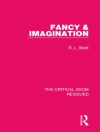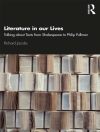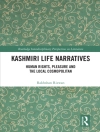Trauma and Spirituality in Ethnic American Women’s Novels examines a genre of ethnic American women’s literature, which the author calls spiritual trauma narratives, that testify to traumas caused by epistemological violence, wreaked by ongoing colonialism, systematic racism, and marginalization grounded in a binary, hierarchical, and supremacist post-Enlightenment epistemology that negates the spiritual knowledge of interconnectivity found in people of color’s belief systems. Placing trauma theory in productive conversation with women of color feminist studies, Marinella Rodi-Risberg explores literary texts by Chicana, African American, and Native American authors that engage readers in the protagonists’ transformative encounters with ancestral knowledge through symbols, ritual, dreaming, storytelling, and interactions with the natural world. In this way, the author argues, they model a shift in awareness regarding historical and present traumas including slavery, genocide, racial and sexual violence, highlighting the importance of literature as a site of knowledge production and resistance.
表中的内容
.- Chapter 1: Narrative as Spiritual Work.
.- Chapter 2: A Prayer for Healing and Spiritual Transformation: Trauma and Curanderismo in Alma Luz Villanueva’s Naked Ladies.
.- Chapter 3: The Love of Yemoja: Trauma and Africana Spirituality in Toni Morrison’s Novel.
.- Chapter 4: Historical Trauma, Sacred Geography, and Tribal Knowledge in Louise Erdrich’s The Round House.
.- 5.Conclusion.
关于作者
Marinella Rodi-Risberg is Affiliated Researcher, Department of Language and Communication Studies, University of Jyväskylä, Finland, and author of Intersectional Trauma in American Women Writers’ Incest Novels from the 1990s (2022). She has published on trauma in book chapters, including in Trauma and Literature (2018), and journal articles in, among others, American Indian Quarterly, Ecozon@, Critique: Studies in Contemporary Fiction.












